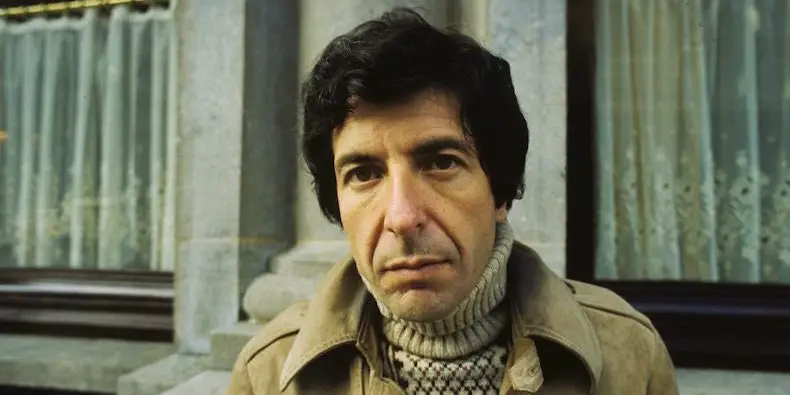Slogging through the songwriting process and had the thought, "hey, just how long exactly does it take professional songwriters to write a song?"
It can be frustrating to have that verse down for months before you can come up with anything resembling a chorus.
I've personally written hundreds of songs, and I've worked as an arranger for other artists on occasion.
Additionally, I've researched what the professionals do, and I've discovered some interesting things about the creation and songwriting process...
Professional songwriters can finish an entire song & demo in just a day or two, and have been known to easily produce 500 or more songs in a year. Some songwriters can write a song in just 15 minutes, while other songs can sometimes can take years to finish.
I should clarify. When I say "day", I'm really talking about "sessions". A session being the time you start working on your song until the time you stop for an extended period of time.
Now, that answer obviously includes a lot of variance. So let's try and dive a little deeper.
How Long Should It Take To Write A Song?
One of the most popular juxtapositions that is made to illustrate the vast range of time it takes to write a song are Bob Dylan and Leonard Cohen.
Bob Dylan asked Leonard how long it took to write "Hallelujah." Leonard said "ten years."
Then Leonard asked Bob how long "I and I" took to write. Dylan said, "Fifteen minutes."
Bob Dylan
"I and I"
15 Minutes To Write

Leonard Cohen
"Hallelujah"
10 years To write

Because of this vast range, people are able to justify writing slowly.
What they don't tell you is that "Hallelujah" was released in 1984 on his SEVENTH studio album.
That's right, 7th. This means he wrote A LOT of songs before he got to "Hallelujah" and earned the right to take a little bit more time.
What's more, his song didn't even have much success when he released it.
It wasn't until 2001 when the song was featured in "Shrek" that it started to take off and gain popularity.
What we have to keep in mind is that the music industry is completely different today, and we can't necessarily draw conclusions from what artists did to grow a career nearly 40 years ago.
If you're an indie artist trying grow a music career on your own without a record label, then your best bet is to release a lot of music.
And in order to release a lot of music and grow any kind of career, you need to be able to write songs quickly.
What Does Writing A Song Involve?
Songwriting involves writing both the music (chords, percussion, bass, lead instruments, etc.) as well as the lyrics.
So to finish writing a song, you would need to have all of the instrumentation and lyrics completely written.
With that in mind...
It shouldn't take you more than a few days (or sessions) to completely write a song. Once the music is written along with the melody, the lyrics tend to write themselves as you work to fit them to the melody.
In short, it shouldn't take you long to write a song. You want to be writing songs quickly.
In my experience and study, I've discovered an interesting trend that extends into other creative fields, such as novel writing, painting, and more.
This trend is that you want to create/write and get your ideas out and down on paper (or DAW/Computer) as fast as possible.
In other words, creating or writing quickly actually helps to INCREASE the quality, whereas you might intuitively think it would be the opposite.
Why Is Writing/Creating Quickly Important?
Writing quickly is important for several reasons:
The first two points probably make sense to you, but you might be left scratching your head over the third important reason for writing songs quickly.
Yes, writing songs quickly actually increases the quality of the songs you write, and that's because it enables you to tape into cognitive state of being known as "Flow State".
What Is Flow State?
Flow state is simply when you become fully immersed in whatever you are doing, and your best work flows out of you effortlessly.
Or, described another way...
A mental state of relaxed high-performance.
Flow State
Flow State enables you to write or create at peak performance without strain.
You've probably experienced this yourself if you've ever really gotten in the groove of working on a track. It feels like a few minutes have gone by, but you look at the clock, and find an hour or more has flown by without your knowledge.
And it wasn't hard. It was fun. It was enjoyable.
That's Flow State, and it's the optimal environment for creation.
How do you enter Flow State?
To enter Flow State, you need the right conditions, and those conditions are that your work must be:
I'll write a future article going more in-depth on Flow State, and how to write songs faster, but now, just know that it is key.
And one of the best ways to make sure you are challenging your brain enough is to work quickly. This keeps your mind from getting bored or frustrated.
Therefore, speed is essential for achieving Flow State.
With that in mind...
In my opinion, I say you shouldn't spend more than a week writing a song.
Now, editing, mixing, mastering...all of that takes longer. But the actually process of writing the music and lyrics should be a fairly quick process.

Write A Hit Song!
Click below to download my free Hit Creation checklist which demystifies the songwriting process and boils down the techniques hit songwriters use into a simple 9-step formula.
Songwriting Doesn't Have To Be Linear
However, this doesn't mean you have to sit down from scratch and create an entire song from nothing in a very short period of time. In fact, I advise against that.
You should definitely be writing down any ideas that come to you throughout the day.
Some songs, you might find that you gradually work on them, little by little, over a longer period of time. Whereas other songs might come to you very quickly.
Every song is different.
With that said, you can also arrange your life in such a way that you become a songwriting machine.
For that to happen, you need to be consistently restocking your songwriting raw material.
How To Become A Songwriting Machine
You are the songwriter, which means you need to be consistently investing in yourself and your songwriting assets.
You want to constantly be learning, studying, and practicing.
Here are a few things you can be doing to stock up your songwriting "raw material"
It's Okay If Some Songs Take Longer To Write, But...
You need to be releasing songs regularly as an independent artist. This is how you can keep the momentum going, which is so vital for our modern music industry of short attention spans and algorithms.
It's okay if some songs take longer to write, but be writing other songs in the meantime that don't take as long.
Time spent honing and improving a song that needs it is well spent.
There have many many songs I've written that have been technically "done", but I wasn't quite happy with a certain section (like a chorus or bridge).
It might have been okay, but I made a rule for myself that I wouldn't finish writing a song until every section of the song was good enough that it prompted me to want to skip ahead to that section at any given time.
Therefore, there have been a lot of songs where I've had to completely rewrite the choruses or verses, and the final result is much better for it!
So don't push out a song just to push it out if you don't think it's good, but also don't take forever.
Think Outside The Box
You might have some song ideas that sound really cool, but you just can't figure out where to take it next, and that's okay!
Consider making that little "unfinished" song idea a shorter interlude song.
Don't throw it out just because it doesn't conform to your idea of what a song "should" be.
In The End, There Are No Rules
So long as you are being consistent, working on Flow State, and releasing new music, then it doesn't really matter how long it takes you to write a song.
That said, you can improve much faster by creating a high-volume of finished songs.
This doesn't even mean you have to release every song you finish, but you probably will learn something from every song you write, and at the very least...
You can a sense of accomplishment when you finish a song, and that gives you the confidence and momentum you need to grow a fanbase and artist career.
How To Write Songs Faster
Believe it or not, but giving yourself some boundaries is actually a great way to spark creativity and help you to write songs faster.
If you're just staring at a blank DAW and thinking to yourself, "I need to write a song," it's going to be very hard to get any ideas, because that "prompt" of just "writing a song" is waaay too big and vague.
First, you have to start with genre.
Already, you've given yourself some boundaries, as different genres lend themselves to certain sounds, instruments, and song structures, and not others.
Another thing you might want to try is writing a song the way hit-makers do.
I've studied what top hit-songwriters all tend to have in common with their songs and put together a free guide that covers those commonalities.
In fact, I discovered that all of the hit songs tend to have 9 key elements in common.
If you're only having to follow a 9-step formula, you may find that song writing gets a lot easier and faster.
This doesn't mean you have to follow this formula for every song, but it can help you get the ideas flowing.

Write A Hit Song!
Click below to download my free Hit Creation checklist which demystifies the songwriting process and boils down the techniques hit songwriters use into a simple 9-step formula.
I hope you found this post on how long should it take you to write a song helpful!
If so, feel free to share, and let me know in the comments below...

